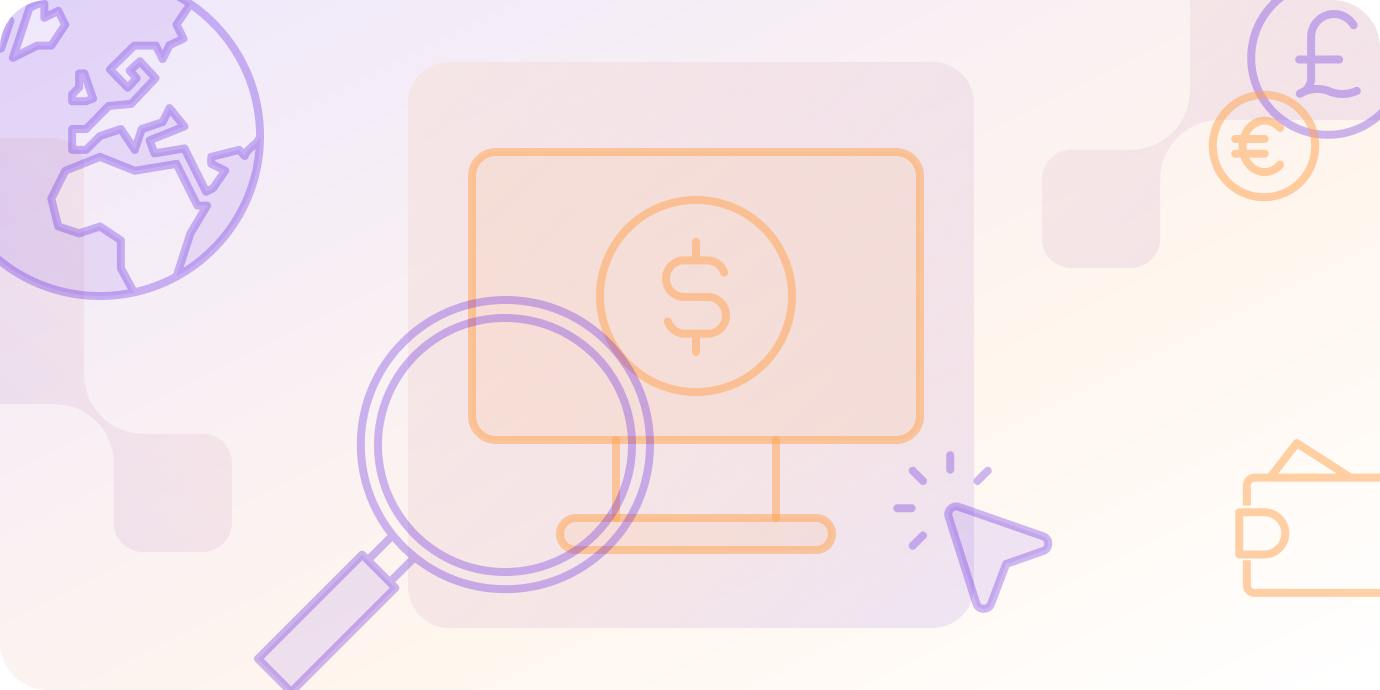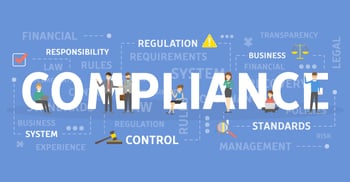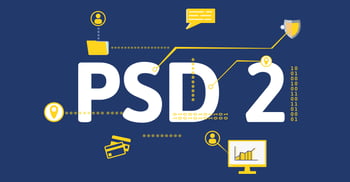SaaS Compliance: A Guide to Simplify & Scale in 2025

Global tax compliance for SaaS is essential for businesses selling software online. Without it, you risk legal penalties, data breaches, and reputational harm. The most efficient way to manage sales tax compliance? Partner with a Merchant of Record (MoR) like PayPro Global, which offers SaaS compliance automation, fraud prevention, PCI-DSS compliance, global payment processing, and more.
What Is SaaS Compliance?
SaaS compliance refers to the legal, regulatory, and industry-specific standards SaaS companies must follow to collect, store, and manage customer data securely.
Subscription management compliance means you need it to:
- Avoid legal and financial penalties.
- Protect user data and maintain trust.
- Scale globally across regions and industries.
Key Compliance Types
Compliance types can be:
Data protection (e.g., GDPR, HIPAA)
Financial reporting (e.g., GAAP, IFRS)
Cybersecurity standards (e.g., SOC 2, ISO/IEC 27001)
Payment and fraud regulations (e.g., PCI DSS, PSD2)
What Makes SaaS Compliance So Complex?
1. Overlapping Frameworks
SaaS companies often need to comply with multiple eCommerce compliance regulations at once—depending on the markets, products, and customer base. Each framework (like GDPR or SOC 2) has its own auditing and reporting requirements.
2. Different Regional Laws
Every region has different rules:
- EU: GDPR requires strict user consent and data portability.
- US: HIPAA enforces data protection for health info.
- Canada: PIPEDA governs personal data usage.
PayPro Global simplifies cross-border compliance by automatically aligning your processes with local laws, including:
Tax calculation per jurisdiction
GDPR-compliant data handling
Data residency solutions
3. Unique Product Security Needs
Each SaaS product introduces new security and compliance risks. Subscription models, in-app payments, and user data collection all increase your exposure.
PayPro Global handles product-level risk by offering:
Integrated fraud detection tools
PCI DSS compliance certified infrastructure
Automated chargeback management protection
6 Key Business Areas Tied to SaaS Compliance
1. Accounting Standards
Standards like IFRS and GAAP determine how you report revenue. SaaS businesses must navigate rules on:
- Subscription billing cycles
- Deferred revenue
- Cancellations and modifications
PayPro Global automates revenue recognition in line with international accounting rules—reducing manual errors and audit risk.
2. Global Tax Compliance
Selling software globally means dealing with VAT, sales tax, and digital tax laws in dozens of regions.
PayPro Global calculates and remits taxes in every jurisdiction you sell to, including:
Automated VAT/GST filing
Threshold monitoring for economic nexus
Region-specific invoicing
3. Cross-Border Payments Compliance Regulations
Online payments must comply with local laws and card network rules.
With PayPro Global, you get:
Built-in PSD2 and KYC compliance
Global payment method support
Real-time fraud screening
4. Cybersecurity
Data breaches lead to lawsuits, fines, and churn. Gartner predicts 99% of cloud-security failures will be the customer’s fault by 2025.
PayPro Global ensures security with:
End-to-end encryption
Secure data storage and transfer
Ongoing monitoring and vendor vetting
5. Revenue Recognition
You must recognize revenue properly over the duration of a subscription—even if the customer pays upfront.
Our MoR model handles complex revenue logic, including:
Amended contracts
Prorated charges
Mid-term cancellations
6. Data Residency Requirements
Some countries require that user data be stored locally.
PayPro Global adapts to data residency laws by using compliant cloud infrastructure with regional data centers that meet national regulations.
Benefits of SaaS Compliance (And Doing It Right)
1. Build Customer Trust
With cyberattacks and breaches rising, compliance shows customers you take their data seriously.
2. Earn Investor Confidence
Investors favor companies that follow compliance frameworks like SOC 2 and ISO 27001.
3. Ensure Operational Continuity
Avoid costly downtime and reputation loss due to security or legal failures.
4. Focus on Growth
Letting a MoR like PayPro Global manage compliance frees your team to focus on product development and expansion.
eCommerce Partner
Thrive with the industry's most innovative all-in-one SaaS & Digital Goods solution. From high-performing payment and analytics tools to complete tax management, as well as subscription & billing handling, PayPro Global is ready to scale your SaaS.
Sell your SaaS globally with PayPro Global!
6 Major SaaS Compliance Frameworks You Need to Know
|
Framework |
Region |
Focus |
|
SOC 2 |
US |
Data security in the cloud |
|
CSA STAR |
Global |
Cloud risk assurance |
|
Cyber Essentials |
UK |
Basic cybersecurity protections |
|
GDPR |
EU (global impact) |
Data protection and privacy |
|
ISO/IEC 27001 |
Global |
Information security management |
|
PCI DSS |
Global |
Secure card payment processing |
The High Cost of Non-Compliance
Legal Penalties
Failing to comply with laws like HIPAA or GDPR can lead to massive fines and even jail time.
- Example:
SuperCare Health faced a class-action lawsuit after a breach affected 300,000+ patients. They failed to meet HIPAA standards.
Financial Loss
The average cost of a data breach in 2021 was $4.24 million, according to IBM.
- Example:
Clearview AI was fined €20M for violating GDPR rules in Greece.Reputational damage
Companies that suffer breaches often lose up to 25% of their market value. Startups are especially vulnerable.
What Is a Merchant of Record (MoR)?
A Merchant of Record (MoR) is the legal entity responsible for selling a product or service to the end customer. The MoR handles all financial and legal obligations related to the transaction—including processing payments, managing taxes, ensuring compliance, and handling chargebacks.
In the SaaS industry, using an MoR solution like PayPro Global can be a game-changer. Here's why:
Key Responsibilities of an MoR
Payment Processing: The MoR securely collects and processes customer payments across multiple regions and currencies.
Tax Compliance: The MoR calculates, collects, files, and remits taxes (e.g., VAT, GST, sales tax) according to local and international tax laws.
Regulatory Compliance: The MoR ensures that all transactions adhere to applicable data privacy laws, financial regulations, and industry standards (e.g., PCI DSS, GDPR).
Risk and Fraud Management: The MoR assumes liability for fraud, chargebacks, and disputes—removing this burden from your internal team.
Global Legal Presence: The MoR serves as the official seller in every country, eliminating the need for SaaS companies to register and operate entities in multiple jurisdictions.
Should You Handle SaaS Compliance Internally or Use a MoR?
|
Option |
Pros |
Cons |
|
Internal Compliance Team |
Full control |
Expensive, time-consuming, requires niche expertise |
|
Merchant of Record (MoR) |
Scalable, cost-efficient, automated |
Less customization of compliance stack |
Verdict: A MoR like PayPro Global reduces overhead, prevents compliance mistakes, and accelerates global expansion.
How PayPro Global Helps SaaS, Software & Game Companies Stay Compliant
PayPro Global serves as your all-in-one compliance partner, especially suited for:
- SaaS companies scaling globally
- Game studios handling microtransactions
-
Software providers with complex billing models
What you get:
✔️ Automated tax compliance across 200+ jurisdictions
✔️ Real-time fraud and chargeback protection
✔️ GDPR & PCI DSS-certified infrastructure
✔️ Secure global payments (PSD2, KYC-compliant)
✔️ Built-in localization (tax, currency, legal terms)
✔️ Full revenue recognition automation
✔️ Support with ISO, SOC 2, and GDPR documentation
eCommerce Partner
Thrive with the industry's most innovative all-in-one SaaS & Digital Goods solution. From high-performing payment and analytics tools to complete tax management, as well as subscription & billing handling, PayPro Global is ready to scale your SaaS.
Sell your SaaS globally with PayPro Global!
Closing Thoughts on the True Cost of SaaS Compliance
Failing to meet compliance standards can destroy customer trust, trigger costly penalties, and stall your business growth. But staying compliant doesn't have to overwhelm your team.
With PayPro Global as your Merchant of Record, you eliminate the guesswork and complexity of SaaS compliance—so you can focus on what matters most: building great products and scaling your business.
Visit PayPro Global or reach out to discuss how you can become a fully compliant, fast-growing SaaS enterprise. We’d love to hear from you and have a chat about how our abilities fit your needs!
FAQs
What is SaaS compliance in simple terms?
SaaS compliance means following the rules for how your business handles customer data and payments. It's crucial for avoiding large fines, building customer trust, and being able to sell your software legally across different countries.
What are the biggest risks of non-compliance for a SaaS company?
The biggest risks are massive financial penalties, severe reputational damage, and customer loss. A single data breach can cost millions of dollars and destroy the trust you've built with your users, stopping your business growth in its tracks.
How can a SaaS business manage global tax compliance?
The easiest way to manage global tax is by partnering with a Merchant of Record (MoR). An MoR automatically calculates, collects, and remits digital sales taxes like VAT and GST worldwide, ensuring you are always compliant without needing in-house tax experts.
What is PCI DSS compliance and does my SaaS business need it?
PCI DSS is a set of security rules for any business that processes credit card information. If you accept card payments, you must be compliant. Using a pre-certified MoR is the simplest way to meet this requirement and secure customer payment data.
Ioana Grigorescu
Ioana Grigorescu is PayPro Global's Content Manager, focused on creating strategic writing pieces for SaaS, B2B, and technology companies. With a background that combines Languages and Translation Studies with Political Sciences, she's skilled in analyzing, creating, and communicating impactful content. She excels at developing content strategies, producing diverse marketing materials, and ensuring content effectiveness. Beyond her work, she enjoys exploring design with Figma.
-
1.Explore PayPro Global's Solutions: See how our platform can help you streamline your payment processing and boost revenue.
-
2.Get a Free Consultation: Discuss your specific needs with our experts and discover how we can tailor a solution for you.
-
3.Download our Free Resources: Access valuable guides, checklists, and templates to optimize your online sales.
-
4.Become a Partner: Expand your business by offering PayPro Global's solutions to your clients.
- SaaS compliance is essential for preventing fines, safeguarding user information, and facilitating worldwide scalability.
- SaaS compliance is made easier by using a Merchant of Record (MoR) such as PayPro Global, which automates tax, payment, and regulatory procedures.
- Proactive compliance is crucial since non-compliance can lead to significant fines, harm to one's brand, and a decline in customer trust.
Get the latest news



